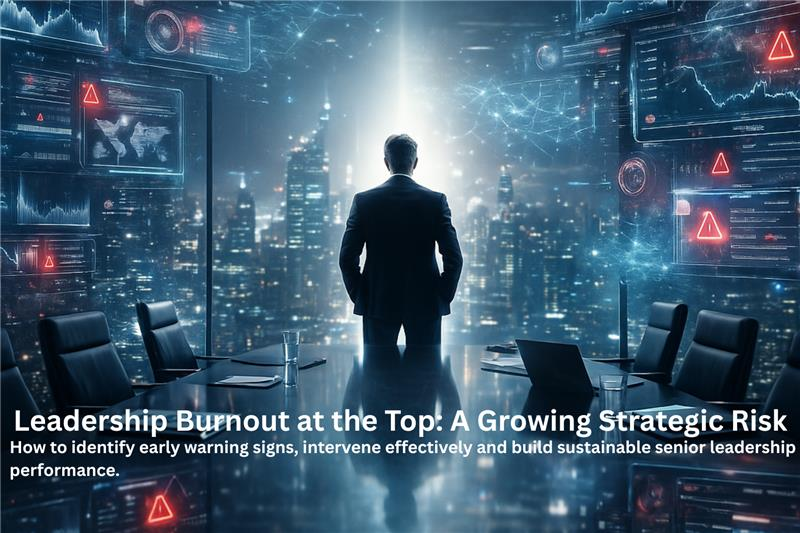The Role of Emotional Intelligence in Leadership: How We Assess It
As the dynamics of the workplace continue to shift towards a more collaborative and people-centric environment, the importance of emotional intelligence (EI) in leadership and executive assessment has become increasingly evident.
At
Wyman Bain, our motivation as a headhunting company is to enable and enact our clients’ successes and through this develop a long-term relationship through delivering outstanding results and exceptional levels of service. Emotional intelligence plays a key role, so we thought it essential to share with you just what emotional intelligence is, why it is crucial in leadership roles, how it manifests within leadership, methods to measure it, the associated benefits, as well as ways to evaluate and enhance one's own emotional intelligence.
What is Emotional Intelligence?
Emotional intelligence, or EI for short, is all about being able to understand and handle your own emotions and those of others. It's like having the ability to recognise what you and other people are feeling and knowing how to deal with those feelings in a smart way. Emotional intelligence covers a range of skills like knowing yourself (self-awareness), keeping your cool (self-regulation), understanding others (empathy), being good with people (social skills), and staying driven (motivation).

Why is Emotional Intelligence Important?
Emotional intelligence is crucial in various aspects of life, including personal relationships, academic success, and professional endeavours. In leadership, it plays a fundamental role in building strong interpersonal connections, enhancing collaboration, and driving organisational success. Leaders with high EI are better equipped to navigate complex social dynamics, inspire trust and loyalty among team members, and adapt to changing circumstances with resilience and composure.
What is Emotional Intelligence in Leadership?
Emotional intelligence in leadership refers to the ability of leaders to leverage their emotional competencies to effectively influence and motivate others towards shared goals. A leader with high emotional intelligence possesses the awareness and skills necessary to understand the emotions and motivations of team members, regulate their own emotions in challenging situations, and cultivate a positive and supportive work environment conducive to productivity and innovation - regardless of the industry!
How to Measure Emotional Intelligence
When it comes to measuring emotional intelligence, the DiSC assessment is a valuable tool. The DiSC test evaluates behavioural styles and preferences, providing insights into how individuals interact with others and approach tasks.
While it may not directly assess emotional intelligence in the traditional sense, the DiSC assessment offers valuable information about communication styles, conflict resolution tendencies, and leadership preferences, all of which are closely linked to emotional intelligence. By understanding one's DiSC profile through our
executive assessment individuals can gain a deeper insight into their strengths and areas for growth in interpersonal dynamics, contributing to their overall emotional intelligence development.
What are the Benefits of Emotional Intelligence?
Leaders with high EI tend to create a more inclusive and supportive work environment, where team members feel valued, motivated, and empowered to contribute their best. Additionally, EI enhances decision-making abilities by enabling leaders to consider both rational analysis and emotional insights, leading to more balanced and effective outcomes. Moreover, emotionally intelligent leaders are better equipped to manage conflicts, navigate ambiguity, and inspire change.
How to Evaluate Your Own Emotional Intelligence
Self-awareness is the most important factor when it comes to emotional intelligence, and self-reflection is an essential tool for evaluating one's own EI. To assess your emotional intelligence, start by reflecting on your emotions, triggers, and patterns of behaviour in different situations. Consider how you respond to stress, criticism, and conflicts, and identify areas where you could improve your emotional self-regulation and empathy.
Seek feedback from trusted colleagues, mentors, or coaches to gain insights into how others perceive your emotional intelligence and areas for growth. Be open to constructive criticism and commit to continuous learning and development in emotional competencies.
Emotional Intelligent Leadership
Emotional intelligent leadership is characterised by empathy, authenticity, and a genuine concern for the well-being and development of others. Emotionally intelligent leaders create a culture of trust, transparency, and psychological safety, where team members feel comfortable expressing their ideas, concerns, and emotions openly.
These leaders lead by example, demonstrating empathy, humility, and resilience in their actions and decisions. They prioritise building strong relationships and connections with their team members, recognising that emotional bonds are essential for collaboration and high-performance.
Want to learn more about hiring the right people? Check out
How to hire successful people: Recruitment funnels that work.
At
Wyman Bain, we are your dedicated partner, equipped with the expertise, resources, and commitment to navigate this intricate journey with you. Entrusting your recruitment needs to an experienced and forward-thinking company like ours ensures that you not only find the right talent but also unlock opportunities for further growth.



